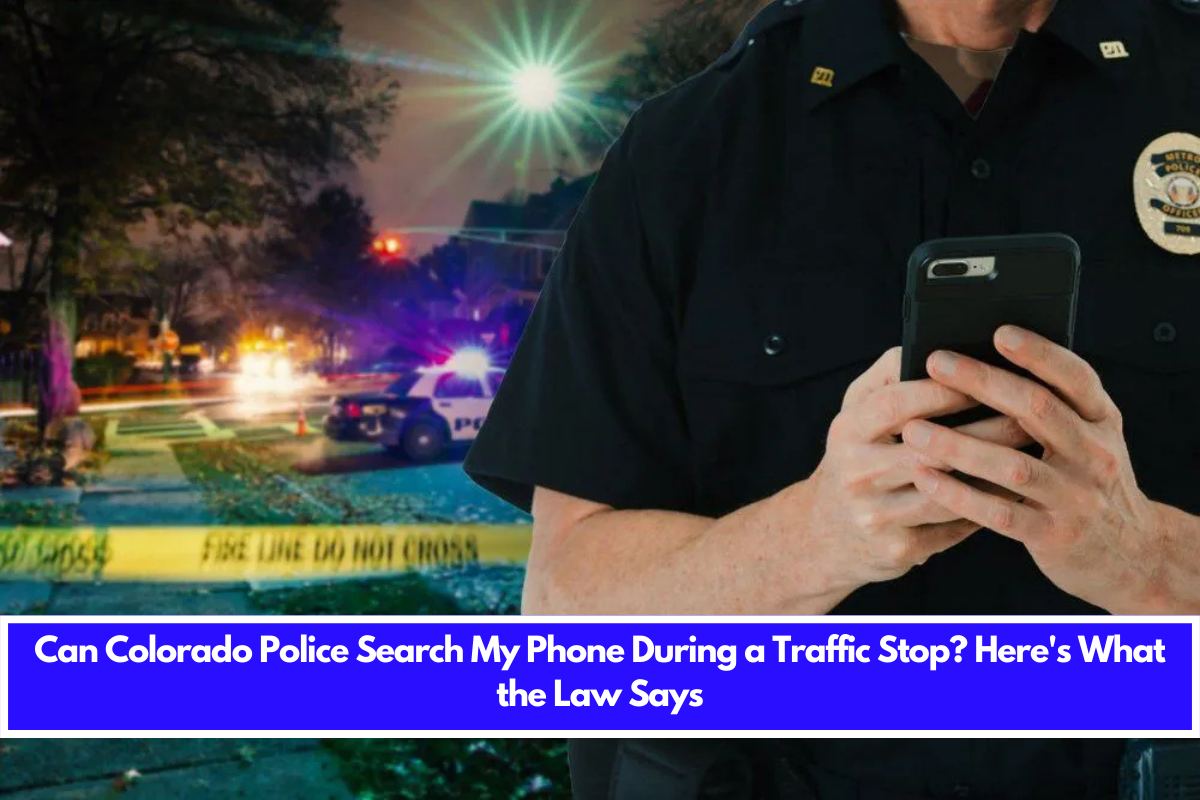In Colorado, police generally cannot search your phone during a traffic stop without your consent, a warrant, or a specific legal exception. Your cell phone is protected by both the U.S. and Colorado Constitutions against unreasonable searches and seizures. However, there are important exceptions, particularly if you are under arrest.
When Can Police Search Your Phone?
Without Your Consent or a Warrant:
Police cannot search your phone during a routine traffic stop unless you give them permission or they have a valid search warrant. If an officer asks to look at your phone, you have the right to refuse consent, and officers in Colorado are required to inform you that you can refuse.
With Your Consent:
If you voluntarily allow the officer to search your phone, any evidence found can be used against you. Consent must be given freely and voluntarily.
Incident to Arrest:
If you are lawfully arrested, police may be able to search your phone without a warrant as part of a “search incident to arrest.” Colorado courts have upheld that searching the call history of a cell phone at the time of arrest is lawful if it is immediately after the phone is taken from you and relates to the crime for which you were arrested.
However, this exception is generally limited to situations where evidence of the crime of arrest is likely to be found on the phone, and the search must be contemporaneous with the arrest.
Other Exceptions (Exigent Circumstances):
In rare cases, if there are exigent circumstances-such as an immediate threat to safety or risk of evidence destruction-police may be able to search your phone without a warrant or consent.
What If You Are Not Under Arrest?
- During a routine traffic stop where you are not arrested, police cannot search your phone without your consent or a warrant. If an officer insists, you can politely state, “I do not consent to a search of my phone.” The officer must respect your refusal unless they have probable cause and a valid legal exception applies.
Key Points to Remember
- You have the right to refuse a search of your phone during a traffic stop unless you are being arrested or a legal exception applies.
- If you are arrested, police may search your phone’s call history or other data if it is directly related to the reason for your arrest, but this is a developing area of law and may be subject to further legal clarification.
- Always be clear and polite if you do not consent to a search.
- If your phone is searched without your consent or a warrant and you are not under arrest, any evidence found may be challenged in court as inadmissible.
Sources:
- https://schwanerlaw.com/colorado-springs/dui-defense/probable-cause/
- https://www.shouselaw.com/co/defense/warrants/search/
- https://www.hdezlaw.com/blog/2024/12/can-police-search-your-car-without-a-warrant-in-colorado/
- https://www.thebusseylawfirm.com/crime-blog/criminal-defense/colorado-search-and-seizure-law/











Leave a Reply